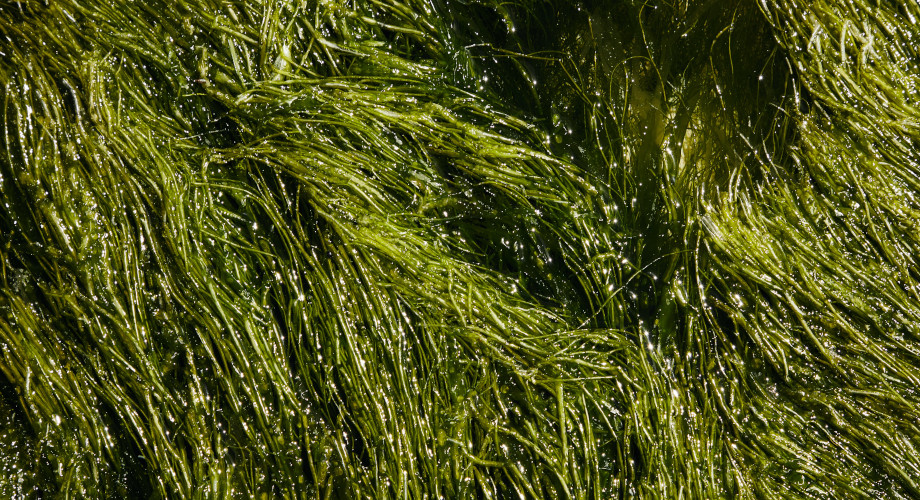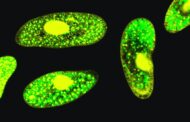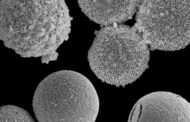
Photo by Laker
With more of us looking for alternatives to eating animals, new research has found a surprising environmentally friendly source of protein – algae.
The University of Exeter study has been published in The Journal of Nutrition and is the first of its kind to demonstrate that the ingestion of two of the most commercially available algal species are rich in protein which supports muscle remodeling in young healthy adults. Their findings suggest that algae may be an interesting and sustainable alternative to animal-derived protein with respect to maintaining and building muscle.
Researcher Ino Van Der Heijden from the University of Exeter said: “Our work has shown algae could become part of a secure and sustainable food future. With more and more people trying to eat less meat because of ethical and environmental reasons, there is growing interest in nonanimal-derived and sustainably produced protein. We believe it’s important and necessary to start looking into these alternatives and we’ve identified algae as a promising novel protein source.”
Foods rich in protein and essential amino acids have the capacity to stimulate muscle protein synthesis, which can be measured in the laboratory by determining the incorporation of labelled amino acids into muscle tissue proteins and translated to a rate over time. Animal-derived protein sources robustly stimulate resting and post-exercise muscle protein synthesis.
However, because animal-based protein production is associated with increasing ethical and environmental concerns, it’s now been discovered that an intriguing environmentally friendly alternative to animal-derived protein is algae. Cultivated under controlled conditions, spirulina and chlorella are the two most commercially available algae that contain high doses of micronutrients and are rich in protein. However, the capacity of spirulina and chlorella to stimulate myofibrillar protein synthesis in humans remains unknown.
To bridge the knowledge gap, University of Exeter researchers assessed the impact of ingesting spirulina and chlorella, compared with an established high-quality nonanimal-derived dietary protein source (fungal-derived mycoprotein) on blood amino acid concentrations, as well as resting and post-exercise myofibrillar protein synthesis rates. Thirty-six healthy young adults participated in a randomized, double-blind trial. Following a bout of one-legged resistance leg exercise, participants ingested a drink containing 25 grams of protein from fungal-derived mycoprotein, spirulina or chlorella. Blood and skeletal muscle samples were collected at baseline and during a four-hour post-feeding and post-exercise period. Blood amino acid concentrations and myofibrillar protein synthesis rates in rested and exercised tissue were assessed.
Protein ingestion increased blood amino acid concentrations, but most rapidly and with higher peak responses following consumption of spirulina compared with mycoprotein and chlorella. Protein ingestion increased myofibrillar protein synthesis rates in both rested and exercised tissue, with no differences between groups, but with higher rates in exercised compared with rested muscle.
This study is the first of its kind to demonstrate that ingestion of spirulina or chlorella robustly stimulates myofibrillar protein synthesis in resting and exercised muscle tissue, and to an equivalent extent as a high-quality nonanimal derived counterpart (mycoprotein).
Original Article: Algae as a surprising meat alternative and source of environmentally friendly protein
More from: University of Exeter | University of Birmingham
The Latest Updates from Bing News
Go deeper with Bing News on:
Algae protein
- What’s in Bradenton-area waters? And why does it stink? What to know about the algae
Commonly known as Lyngbya, and also sometimes called “gumbo,” “snot grass,” “fireweed” or “mermaid’s hair,” it is a kind of blue-green algae that has detached from the sea bottom and is now ...
- Edonia Raises €2M to Redefine Plant-Based Alternatives with Umami-Powered Ingredients from Microalgae
Edonia, a French startup unlocking the potential of microalgae to create protein ingredients for plant-based foods, has raised €2 million in a pre-seed ...
- Edonia grabs €2M to turn microalgae into less bitter-tasting ground meat alternative
Paris-based Edonia, is one of the startups working on creating protein ingredients using microalgae. Edonia joins companies like Bevel, AlgaeCore Technologies, Algenuity and NewFish that are all ...
- Edonia grabs €2M to turn microalgae into less bitter-tasting ground meat alternative
Paris-based Edonia, is one of the startups working on creating protein ingredients using microalgae. Now armed with €2 million ($2.1 million), the company is moving forward with producing plant ...
- Top 6 Best Algae Supplements in 2024
Second, it’s important to select a supplement that contains the specific type of algae that best suits your needs. For example, spirulina is known for its high protein content, while chlorella ...
Go deeper with Bing News on:
Nonanimal-derived dietary protein
- Best dry dog food for your pup, according to veterinarians
Did you adopt a dog or want to change your dog’s dry food brand? These veterinarians have advice on the best dry dog food to buy and which kibble to avoid.
- Chipotle reverses protein policy, says workers can choose chicken once again
Chipotle says its employees can choose chicken once again. Last week, the chain asked its U.S. and Canadian employees to temporarily select another protein ...
- Scientists replace fishmeal in aquaculture with microbial protein derived from soybean processing wastewater
Scientists from Nanyang Technological University, Singapore (NTU Singapore) and Temasek Polytechnic have successfully replaced half of the fishmeal protein in the diets of farmed Asian seabass with a ...
- Consumers focused on natural ingredients, protein to improve health
Ingredients associated with natural elements have become a point of emphasis. Nearly three-quarters of consumers said natural foods deliver sufficient nutrients to maintain a healthy and balanced diet ...
- 10 High-Protein Diet Tips for Weight Loss
Laura Burak, MS, RD, shares 10 of the best high-protein diet tips for weight loss you should always keep handy.







